What is the most efficient way of computing the gradient for fixed sized voxel data, such as the source code below. Note that I need the gradient at any point in space. The gradients will be used for estimating normals in a marching cubes implementation.
#import <array>
struct VoxelData {
VoxelData(float* data, unsigned int xDim, unsigned int yDim, unsigned int zDim)
:data(data), xDim(xDim), yDim(yDim), zDim(zDim)
{}
std::array<float,3> get_gradient(float x, float y, float z){
std::array<float,3> res;
// compute gradient efficiently
return res;
}
float get_density(int x, int y, int z){
if (x<0 || y<0 || z<0 || x >= xDim || y >= yDim || z >= zDim){
return 0;
}
return data[get_element_index(x, y, z)];
}
int get_element_index(int x, int y, int z){
return x * zDim * yDim + y*zDim + z;
}
const float* const data;
const unsigned int xDim;
const unsigned int yDim;
const unsigned int zDim;
};
Update 1 A demo project of the problem can be found here:
https://github.com/mortennobel/OpenGLVoxelizer
Currently the output is like the picture below (based on MooseBoys code):
Update 2 The solution that I'm looking for must give fairly accurate gradients, since they are used as normals in a visualisation and visual artefacts like the ones below must be avoided.

Update 2 Solution from the user example is:
